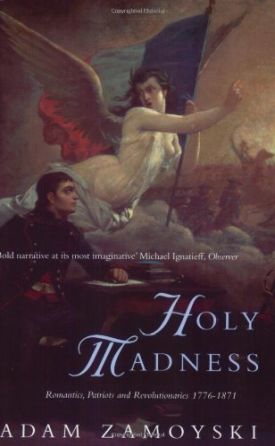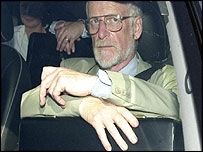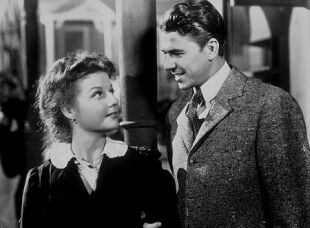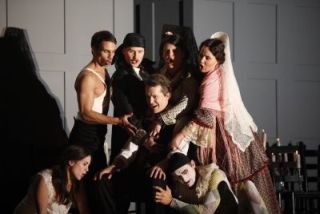Sixteen no-Trump
From The New CriterionLeft-wing cartoonist Garry Trudeau responded to Donald Trump’s entrance into the contest for the Republican presidential nomination this summer with a Sunday strip about — being a cartoonist. “Folks, as I’m sure you can imagine, political cartooning is an extremely demanding gig!” says his cartoon alter ego in the first panel. “It takes its toll!” Then, in the second, third, fourth and fifth panels we see the same figure, against appropriate backdrops, saying: “On the other hand, could there possibly be a more inspiring place to make art than this great land of ours? It’s got everything! Your spacious skies, your shining seas, your purple mountain majesties and your amber waves of grain!” Then, in the final panel, we see the amber waves of grain transformed into the celebrated Trump comb-over with the diminutive figure of the cartoonist, perched like a louse in the middle of it and saying: “Then there’s your low-hanging fruit. . .”
Obviously, it has never occurred to Garry Trudeau that there could be any other reaction than mirth to anything Mr Trump might say or do. Not for his audience. That is presumably what he means by “low-hanging fruit.” The corollary of this unexamined assumption is of course that anyone with a different reaction, and especially anyone taking the tycoon-turned-politician seriously, would not be numbered among his audience. Such people, if any such people there be, can be written off as worthy only of the same contempt as Mr Trump himself.
This assumption of a media audience only of the like-minded is now a commonplace one. It is equally the case with Jon Stewart, who retired in August, a much beloved figure and endlessly belaureled in the media, after 16 years of bringing what one less enthralled critic called “the politics of contempt” to Comedy Central. It was a rare dissenting note. The amusingly named “Room for Debate” blog of The New York Times (to which I once contributed) asked: “Did Jon Stewart Have a Serious Lesson for Journalists?” But all the contributors there had no doubt he did, even if one of them rather pathetically stipulated that “there is still enduring value to balanced, sober reporting of all sides of a story.” No room for debate there, then.
Such utter self-assurance produces the irony-deafness of those who identify themselves with the slogan: “I get my news from Comedy Central and my comedy from Fox News.” Yes, and that’s just the problem — except that they are unable to see it as one. Of course, none of this is news — even Fox news. Nor do I mean to suggest that there is any shortage of offensive cocksureness on the right — not least among the supporters of Mr Trump. But then that’s really the point. Donald Trump is the product of the Jon Stewarts and the Garry Trudeaux, who dominate the media culture, and their mirror image. He speaks to an audience accustomed to their contempt, and he answers it, to their applause, with contempt of his own, joining, too, in their cheerful willingness to write off anyone who doesn’t share it.
On the same day that Mr Stewart retired, laden with the golden opinions of the rest of the media, the GOP candidates took to the stage in Cleveland for their first “debate” — a word which it would be tiresome to put in quotation marks every time it appears, so you may just assume that they are there henceforth — under the auspices of (what else?) Fox news. The coincidence was not unnoticed. “Who will challenge Trump and his ilk now that Jon Stewart is gone?” wailed Jeb Lund in The Guardian. In another New York Times blog post, Phoebe Lett wrote in tribute to Mr Stewart’s “legacy” that “it seems unfair, cruel even, that Jon Stewart would end his tenure as a national court jester the very night the absurdist circus kicks off Indecision 2016.” She, too, like the other denizens of the Times’s editorial page, seems never for a moment to consider writing for anyone who does not already agree with her, or with the sort of civility required of one tasked with persuading rather than abusing those with different opinions from her own.
But I suppose that is only to be expected if she thinks Mr Stewart a “court jester.” At what court, do you suppose, does she imagine him to be the jester? Is it not the court of Prince Barack — to which, as it was lately revealed, the funnyman had been summoned on several occasions to consult with or to amuse the fountainhead of all media honor? Is it not also the court to which she and so many of her colleagues have long been courtiers themselves? For it is out of the mentality of the courtier that the politics of contempt emerges, led by the contempt of the monarch himself for those he must make a point of thinking beneath him — and beneath those whose fortunes depend on his own. Although the media’s politics of contempt dates back to long before President Obama (and even before Mr Stewart), he is the first president openly to join in with that contempt without some trace of inhibition or shame, born of old-fashioned notions of what becomes a president.
The day before the debate between his Republican opponents, for example, he took his case for the recently-negotiated agreement with the Iranians, said to prevent them from developing a nuclear weapon, to American University in Washington where he suggested that the Republicans who opposed his non-treaty treaty were wilfully and foolishly choosing war over peace, as he assumed they had also done in Iraq under his predecessor — and so were making common cause with the “hard-liners” in Teheran chanting “Death to America.” That might seem a bit of a non-sequitur to anyone outside the court. Wasn’t it precisely the hard-line, Death-to-America crowd with whom he was priding himself on having negotiated the agreement? And hadn’t they, so far from opposing it as the Republicans did, celebrated it with yet more chants of “Death to America”?
And yet the courtiers who were relishing the imminent prospect of the “absurdist circus” of Republicans seem barely to have noticed the absurdity of the President’s allegation against the good faith and patriotism of his opponents. One who almost did was cartoonist Tom Toles of The Washington Post whose response was to draw a very large and intimidating elephant confronting a small and shrinking President Obama across a negotiating table in the midst of which has been placed a sheaf of papers labeled “Iran Accord.” The looming elephant is angrily saying in large type: “Some regimes you can’t negotiate with!” In smaller type beneath, another speech bubble also points to the elephant: “You should have learned that dealing with me.” The little cartoonist in the corner is saying: “Don’t expect a better deal.”
It just goes to show how political humor can, at least to those whose sense of irony remains more or less intact, have some of the qualities of those optical illusions which appear to be, by turns, an ornate vase or two people staring at each other — like the elephant and Mr Obama — at uncomfortably close quarters. Making almost the same point as Mr Toles but with the opposite political tendency was the less celebrated but, to my way of thinking anyway, more incisive satirist David Burge, who tweets under the pseudonym of Iowahawk. “Difference between Republicans and Iranians chanting ‘Death to America’?” he asked. “Obama won’t negotiate with Republicans.” Which of these two barbs you choose to laugh at will instantly classify you as dwelling among the media courtiers or, I guess, with us tatterdemalion exiles in the Forest of Arden. “Is all in how you look at it,” as Stan Freberg’s Indian chief said on claiming to discover Columbus, rather than having been discovered by him.
Credit to the courtiers where credit is due, however. At the tail end of her New York Times piece on the President’s American University speech, Julie Hirschfeld Davis wrote this:
While Mr. Obama’s comparison to the Iraq war appeared to be an effort to distinguish his own approach from that of President George W. Bush, some critics said his speech employed the same with-me-or-against-me trope associated with Mr. Bush. “It comes remarkably close to the cartoon image that he has painted of Bush’s rhetoric,” said Peter D. Feaver, a political scientist at Duke who was a national security aide to Mr. Bush from 2005 to 2007.
Some critics! At least she acknowledges their existence. She did not, however, choose to defend the president on the grounds that cartoon politics is all the politics we have now, although if it were my unhappy fate to have to defend Donald Trump as the other Republican candidates were continually dared to do, that is the line I should take. His very presence in the unprecedentedly large Republican field, let alone his sudden leap to the head of it, ought to be enough to make clear what the perspicacious will have been uneasily aware of at least since the Clinton administration — namely that we all live in cartoon-land now.
If any further proof were needed, you only had to look at that opening, two-part debate among the seven and ten candidates making up what the New York Times reported “many in the party believe. . . one of the best presidential fields in decades.” But there was no time or space on that crowded stage in Cleveland to demonstrate as much with boring policy discussions. It was an ad-man’s idea of debating, as each of the candidates was allowed one minute to tout his own accomplishments, real or imagined, and thirty seconds to answer the others. But even that understates the amount of time each was given, since not everyone was allowed to respond to every question.
The whole thing was run with remarkable pace and discipline by the Fox moderators as a reality TV show on which Mr Trump was the star and the man everyone knew all the others wanted to vote off the island — or to whom they wanted to say, in the words of Mr Trump’s previous reality show, “You’re fired!” — but towards whom they all, with the partial exception of Rand Paul, had to pretend to be civil in order not to alienate his supporters. The Fox moderators tried to upset this attempted civility in a natural effort to entertain their audience, both at the time and for days afterward as Mr Trump continued to make outrageous comments about Megyn Kelly, the Fox moderator he saw as his chief antagonist.
Mike Huckabee teased this expectation as he began his closing statement by saying: “It seems like this election has been a whole lot about a person who is very high in the polls, but doesn’t have a clue about how to govern; [there is a sharp intake of breath and a few moans from the audience] a person who has been filled with scandals and who could not lead. And of course I’m talking about Hillary Clinton.” The relief in the burst of laughter that followed, both on stage and in the audience, was palpable. But the rest of the media then took up the chase. “Donald Trump’s Comments Follow Other Candidates on the Trail,” headlined yet another New York Times blog item four days later.
On that occasion, the two who had risen to the media’s bait, criticizing Mr Trump and so being criticized by him, were Jeb Bush and Carly Fiorina. But even those who refused it could still make news by not commenting. The same Times blog had earlier headlined: “Marco Rubio: Won’t Comment on Everything Donald Trump Says.” You could read the pathos in Mr Rubio’s words as he said, “You know, if I comment on everything he says, my whole campaign will be consumed by it. That’s all I’ll do all day.” Yet that was all he might as well have done, for all the interest the media took in anything else he had to say.
Little or nothing that was said by anyone else in the debate lodged in the media’s memory either. They were too busy congratulating themselves and, unusually, Fox for the great show the network put on. “Fox News Moderators Bring a Sharpened Edge to the Republican Debate Stage” headlined The New York Times: “The triumvirate of Fox News anchors who ran the two-hour event — Chris Wallace, Megyn Kelly and Bret Baier — seemed to have one mission above all else in questioning the 10 would-be presidents they faced across the stage at the Quicken Loans Arena: Make them squirm.” I’m pretty sure that was meant as a compliment, suggesting an ever more diminished expectation on the part of the media themselves that political debates can be anything more than media extravaganzas.
Not one but two different Guardian correspondents announced that the moderators in general or Ms Kelly in particular had “won” the debate — which, as I hope it is not too obvious to point out, indicates a certain confusion as to the nature of the contest. “Fox News put on an exemplary spectacle,” wrote Paul Lewis. “It was not so much a debate between candidates, but an interrogation that each man, in turn, had to endure. Moderators Chris Wallace, Megyn Kelly and Bret Baier were forensic, unrelenting and pointed.” Of course, none of these three “exemplary” figures will ever appear on any ballot. Whatever may be the audience’s admiration for their forensic talents, and whatever that may do for ratings and advertising rates at Fox, none of it will do anything to help anyone decide which of the men on stage would make the best president.
All their efforts were devoted to what they regarded as an entertaining demonstration of what they and their admirers already knew, namely that Mr Trump would make a bad one — an effort in which he was happy to cooperate. And yet, beneath the bluster, he sort of had a point, which he might have put like this. “If you guys don’t feel constrained by good manners from asking me to agree that I am a bad man, a man deserving to be excluded from the decent and honorable society out of which we expect to choose our presidents, why should I feel constrained by good manners in my denial of the allegation? Why are such manners demanded of me but not of you?” At any rate, I suspect that something like that is what his admirers heard behind his boorish remarks about Ms Kelly.
Meanwhile, readers who have reached their middle years and upwards may remember that classic bumper-sticker from the 1992 presidential campaign: “Annoy the Media: Re-elect Bush.” As it turned out, there were not enough people in 1992 who wanted to annoy the media for [George H.W.] Bush to be re-elected. Nor will there be enough in 2016 to elect Donald Trump, I suspect, although the fury his election would occasion in the media would make their chagrin at a Bush return to office, then or now, look mild by comparison. For those of us inclined to despair of the cartoon political culture, we have the consolation of knowing that someone in political life has found the secret to defeating the media’s ever vigilant gaffe-patrol and scandal hunt — by the simple expedient of overloading it with so many gaffes and scandals that none carries much weight. I refer, of course, to Hillary Clinton, whom Mr Trump appears to be emulating, at the time of writing, to the extreme and highly gratifying frustration of the media. Like Jaques in the Forest of Arden, we have learned the sole lesson that cartoonland has to teach — that the only consolation for being out of power is to laugh at the vanities of those who are in power, and their courtiers.
Discover more from James Bowman
Subscribe to get the latest posts to your email.







